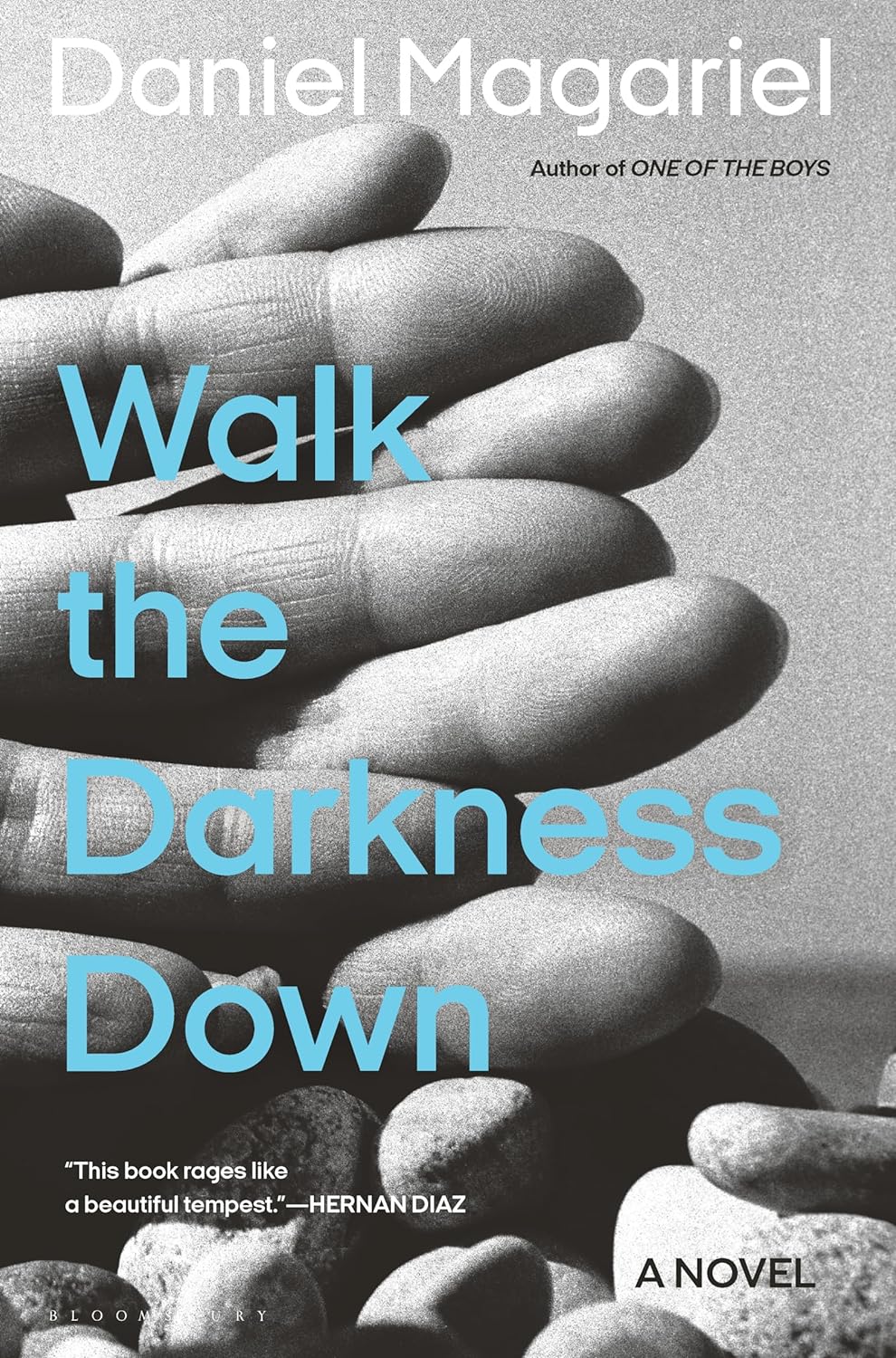Daniel Magariel
Bloomsbury ($27.99)
Daniel Magariel’s latest novel, Walk the Darkness Down, immerses readers into the troubled marriage of Les, a commercial fisherman, and Marlene, a frustrated homemaker. Marlene and Les have endured the worst tragedy conceivable—the death of a child—and though they remained together, their relationship (less a marriage than the inevitable conclusion of a long past romance) is as turbulent as the seas to which Les escapes in an effort to avoid the difficult conversation he and Marlene have needed to have for years.
With observations as insightful as they are sonically pleasing (“Sex has become primitive to him, violent, as grisly as a knifing”), Magariel never strays into the didactic, and the dialogue is equally crisp and effective:
I’m not moving down there. The crew needs me. I have a responsibility to them.
And what about to me?
They’re family.
Family?
Family.
Magariel also judiciously treats readers to purposeful, understated insights. At the end of the first chapter, Marlene clumsily fights Les, only to end up face down on the street in front of their apartment:
For a moment she believes he might somehow conjure Angie by uttering her name, which he’s refused to do for two years now. For a moment, turning her eyes to the top of the stairs, to all the light pouring out of their apartment, she stakes her life on the doorway not being empty.
A story about two people whose life together has been mostly a life apart, Walk the Darkness Down relies on scenes in which such apartness is not only felt but explicit. Marlene finds an unusual hobby of sorts in befriending local sex workers from The Villas, a defunct motel that since essentially serves as a brothel, and taking them home to care for them: “She never entered the motel, never even pulled up to the lobby, and never brought home the same woman twice.” The arrangement is generally reciprocal: “On nights like these Marlene sees herself as a kind of archaeologist, exhuming the lives of others. As Marlene works, the woman she picked up an hour ago is remade into a girl.” Though Marlene’s “hobby” may not be entirely altruistic, her motives are sympathetic: In helping care for the sex workers, Marlene can feel she is symbolically saving her and Les’s late daughter Angie. Yet when Marlene is alone, this indirect salvation is not enough—it will take more than good deeds to heal. It will also take the understanding and involvement of Marlene’s detached husband—a reality not lost on Marlene as she cuddles one of the women at the end of the second chapter.
Magariel’s settings are equally important in establishing the distance between Marlene and Les. Eschewing lengthy and elaborate descriptions of the coastal town in which the couple lives and life at sea, Magariel instead treats the reader to dynamic and symbolically loaded sequences. At one point, Les looks out on the Atlantic Ocean from the trawler he’s stationed on, taking in the unfathomable scale and size of the sea and the life within it:
Out here bait balls the size of football fields appear from nowhere, the water surface suddenly sparkling with tens of thousands of glinting fish. Biblical weather arrives in full portent. On clear days, when the faint curve of the planet is the only delineation of sky and sea, thoughts warp toward the terrors of myth. Les might imagine a skyscraper tsunami lifting out of the horizon. Or in the inscrutable white of fog, the waters haunted and the hazy sun a second moon, the boat might steam into the open mouth of an awakened leviathan.
At times the environment in Walk the Darkness Down is reported or implicit within the plot. Josie, the latest sex worker taken in by Marlene, shares a news story about horseshoe crabs spawning early in the area, a moving echo of her own urgent situation:
They came up out of the ocean, laying their eggs way before they were supposed to, Josie says. But the awful thing is that the sand was too cold to bury them. So they just left them there. Bill [Josie’s pimp] calls it the tooth and claw, same with the birds, times when the human shine rubs away and the world becomes just a giant thing eating itself, one town at time, one species, one industry, one mother—she pauses—one child.
Besides obviously reflecting Marlene’s and Les’s loss, Josie’s reportage also serves as a tonal contrast to Les’s scene of contemplation on the trawler. Though foreshadowing impending danger, such a scene also suggests the possibility of hope—a possibility only achievable through cooperation and forgiveness. Magariel’s novel doesn’t shy away from sad, even tragic, truths, but also gives the reader a more positive reality to contemplate.
Click below to purchase this book through Bookshop and support your local independent bookstore:
Rain Taxi Online Edition Summer 2024 | © Rain Taxi, Inc. 2024

